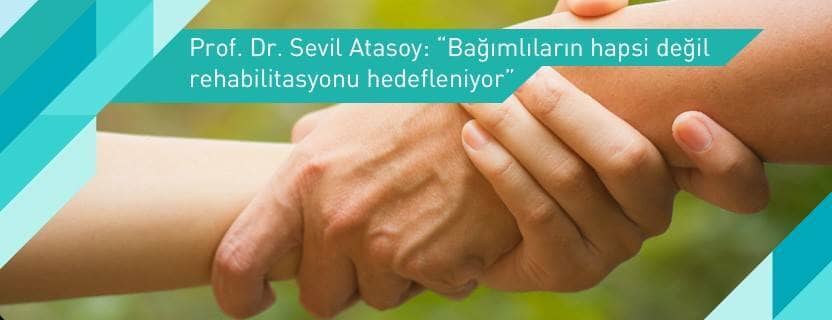
Prof. Dr. Sevil Atasoy: Rehabilitation, not imprisonment of addicts is targeted
Üsküdar University Vice Rector and Director of the Institute of Addiction and Forensic Sciences Prof. Dr. Sevil Atasoy went to Vienna to attend the 119th session of the United Nations International Drug Control Board. Prof. Dr. Sevil Atasoy said that in the coming year, the Board will work on cooperating with governments to ensure that addicts have access to quality and effective treatment, and encouraging governments to switch to alternative practices such as treatment and rehabilitation instead of incarcerating addicts.
Prof. Dr. Atasoy, Vice Rector of Üsküdar University and Director of the Institute of Addiction and Forensic Sciences, was re-elected by the Economic and Social Council with the highest number of votes to serve in the United Nations International Drug Control Board until 2022.
Prof. Dr. Sevil Atasoy, who was elected as the Chair of the Financial and Administrative Affairs Commission in the distribution of duties among the 13 members of the Board, had also served as the Chair of the Board between 2010 and 2015.
Prof. Dr. Sevil Atasoy: "Governments will be encouraged to treat instead of punish"
Prof. Dr. Sevil Atasoy left for Vienna to attend the 119th session of the United Nations International Drug Control Board.
Making a statement before her departure to Vienna, Prof. Dr. Sevil Atasoy listed the goals of the coming year as follows:
"We will work on increasing access to opiate painkillers in middle and low-income countries, cooperating with governments to ensure that addicts have access to quality and effective treatment, providing proportionate penalties for drug-related crimes, and encouraging governments to encourage alternative practices such as treatment and rehabilitation instead of incarcerating addicts."
Reviewing measures taken by countries
During the 119th session, which runs until May 26, members will meet with the heads of the Economic and Social Council, the Commission on Narcotic Substances and the World Health Organization to make assessments.
They will also examine and approve the quantities of narcotic and psychotropic substances requested by countries for medical and scientific use. The Board will review the measures taken by countries to prevent the trafficking of precursors such as acetic acid anhydride, which is used in the illicit production of narcotics, and will assess developments in the introduction of new psychoactive substances, methods of combating them and the harm they cause to the health of societies.
Another task of the Board is to monitor the compliance of more than 200 countries and territories with the 1961, 1971 and 1988 international conventions governing the control of narcotic substances and to develop solutions, with a particular focus on developments in Afghanistan.
Who is on the Board?
In addition to Prof. Dr. Sevil Atasoy, the Board includes Cornelis P. de Joncheere (Netherlands), Wei Hao (China), David T. Johnson (United States), Galina A. Korchagina (Russia), Bernard Leroy (France), Raúl Martín del Campo Sánchez (Mexico), Richard Mattick (Australia), Luis A. Otárola Peñaranda (Peru), Jagjit Pavadia (India), Viroj Sumyai (Thailand), Francisco E. Thoumi (Colombia) and Jallai Toufiq (Morocco).
The board members do not represent their countries. Three of the 13 members are nominated by the World Health Organization and 10 by governments. The Board, which has been operating since 1909, has the power to propose to the United Nations to impose an embargo on countries that do not comply with the conventions.
